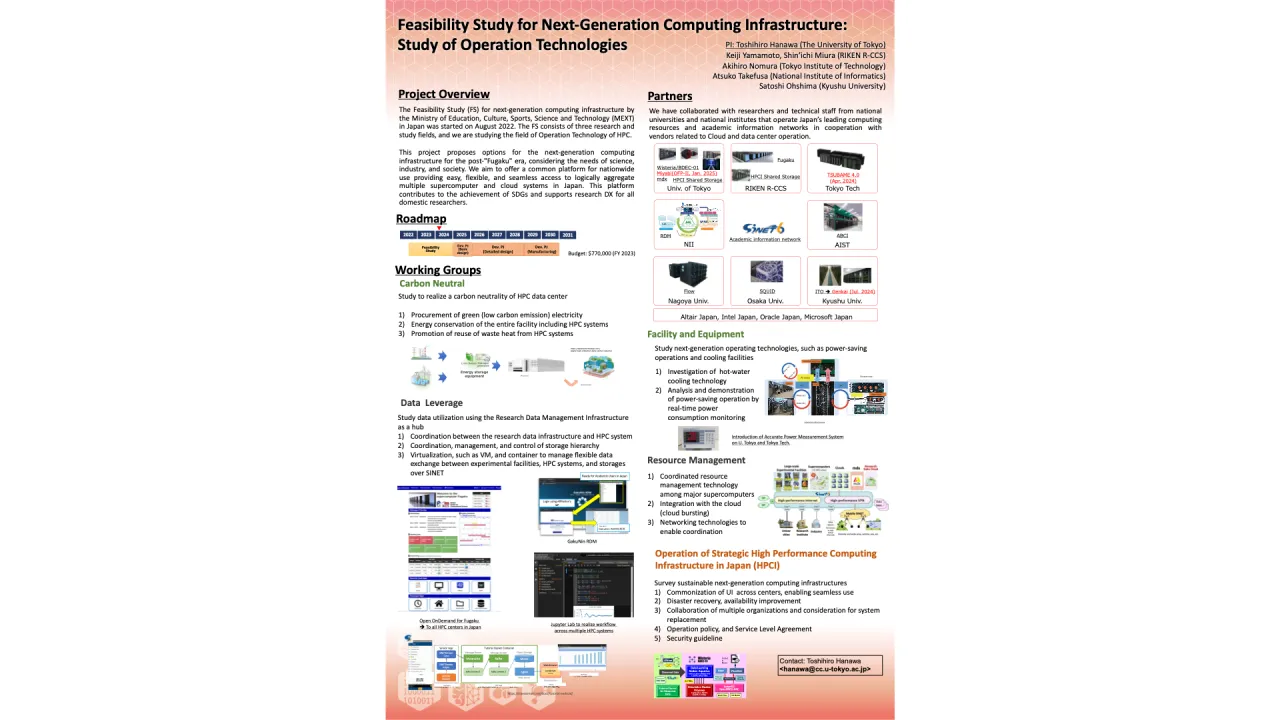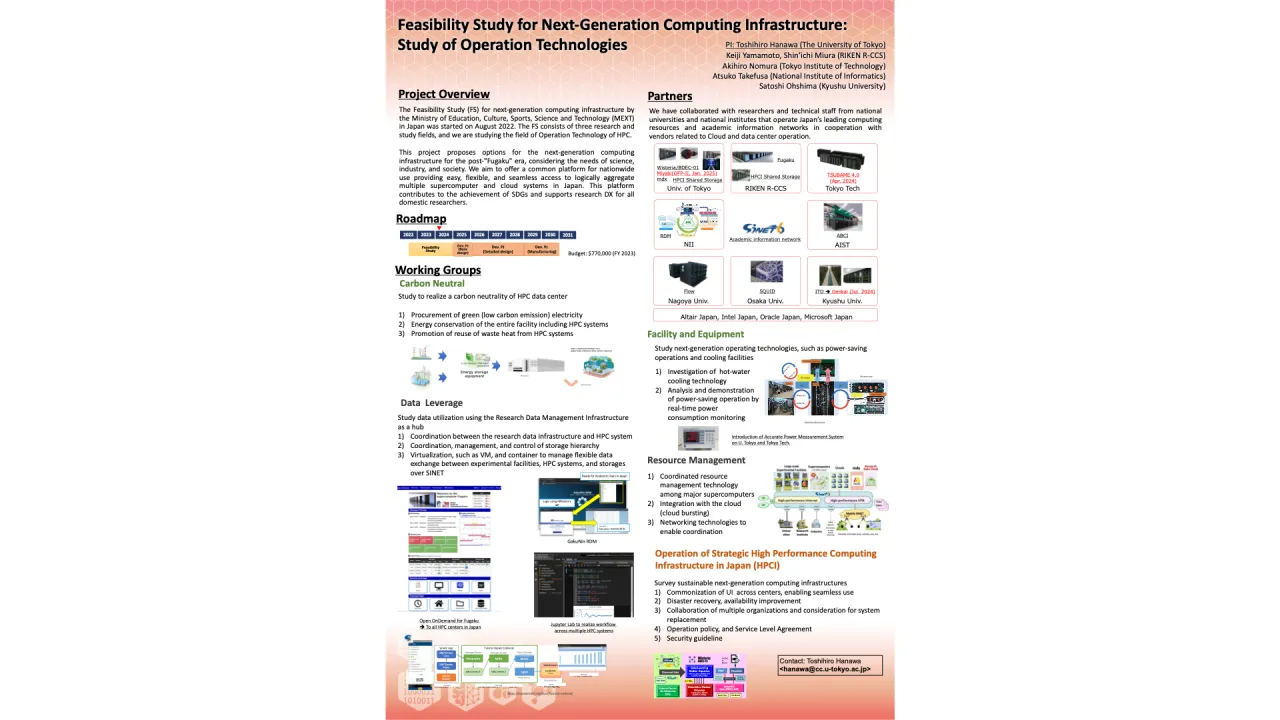

Feasibility Study for Next-Generation Computing Infrastructure: Study of Operation Technologies
Monday, May 13, 2024 3:00 PM to Wednesday, May 15, 2024 4:00 PM · 2 days 1 hr. (Europe/Berlin)
Foyer D-G - 2nd floor
Project Poster
Energy ManagementExtreme-scale SystemsHPC in the Cloud and HPC ContainersResource Management and SchedulingSustainability and Energy Efficiency
Information
Poster is on display.
The Feasibility Study (FS) for next-generation computing infrastructure by the Ministry of Education, Culture, Sports, Science and Technology (MEXT) was started on August 2022. The FS consists of three research and survey fields, system, new computation principles and operation technology. We have studied operation technology on HPC. This project proposes options for the next-generation computing infrastructure for the post-"Fugaku" era, considering the needs of science, industry, and society. We aim to offer a common platform for nationwide use providing easy, flexible, and seamless access to logically aggregate multiple supercomputer and cloud systems in Japan. This platform contributes to the achievement of SDGs and supports research DX for all domestic researchers. This study focuses on operational technology, which has yet to be a primary focus of traditional HPC research and is conducted in several domains. The carbon neutrality group investigates the efficient use of renewable energy and waste heat in HPC data centers. The facility group considers power-saving operations of HPC and facility, hot water-cooling technology, and next-generation cooling equipment. The data-leveraging group investigates data transfer among large-scale experimental facilities, supercomputers, and storages for computational science applications. The resource management group investigates collaboration techniques between HPC systems and cloud infrastructure and between HPC centers, including workflow tools. The SDGs and research DX group survey domestic and international initiatives on digital twin technology. The HPCI operation group discusses the development of a Web-based common interface to enable seamless use and security guidelines, as well as operational policies for HPC centers in Japan.
Contributors:
The Feasibility Study (FS) for next-generation computing infrastructure by the Ministry of Education, Culture, Sports, Science and Technology (MEXT) was started on August 2022. The FS consists of three research and survey fields, system, new computation principles and operation technology. We have studied operation technology on HPC. This project proposes options for the next-generation computing infrastructure for the post-"Fugaku" era, considering the needs of science, industry, and society. We aim to offer a common platform for nationwide use providing easy, flexible, and seamless access to logically aggregate multiple supercomputer and cloud systems in Japan. This platform contributes to the achievement of SDGs and supports research DX for all domestic researchers. This study focuses on operational technology, which has yet to be a primary focus of traditional HPC research and is conducted in several domains. The carbon neutrality group investigates the efficient use of renewable energy and waste heat in HPC data centers. The facility group considers power-saving operations of HPC and facility, hot water-cooling technology, and next-generation cooling equipment. The data-leveraging group investigates data transfer among large-scale experimental facilities, supercomputers, and storages for computational science applications. The resource management group investigates collaboration techniques between HPC systems and cloud infrastructure and between HPC centers, including workflow tools. The SDGs and research DX group survey domestic and international initiatives on digital twin technology. The HPCI operation group discusses the development of a Web-based common interface to enable seamless use and security guidelines, as well as operational policies for HPC centers in Japan.
Contributors:
Format
On-site
